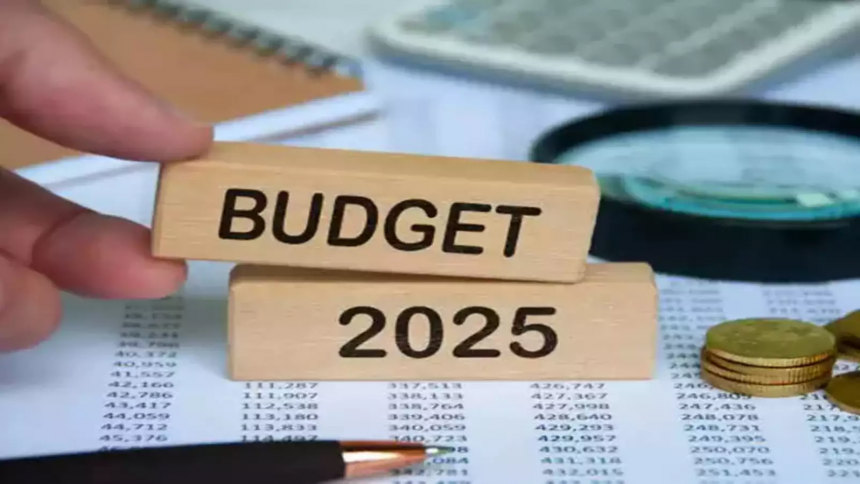Despite global headwinds and domestic challenges, India’s economy has been supported by strong consumption trends and steady private investments. However, targeted reforms are needed to maintain this momentum and address slowing growth.
Sectors such as health insurance, taxation, and mutual funds are particularly hopeful for policy changes that could increase financial inclusion and channel savings into productive investments. With the Union Budget 2025 around the corner, the union government has an opportunity to implement measures that not only stimulate demand but also align with the nation’s broader economic objectives.
India’s economy has demonstrated remarkable resilience, emerging as one of the fastest-growing major economies globally. However, the growth trajectory is showing signs of slowing, underscoring the urgent need to boost demand and accelerate economic expansion.
Experts project India’s economy to grow by 6.5% to 7% in the financial year ending March 2025, falling short of the RBI’s forecast of 7.2%. This marks a notable decline compared to the robust 8.2% growth recorded in FY23-24.
Against this backdrop, various stakeholders are pinning their hopes on specific reforms that can address the immediate challenges and pave the way for sustained growth. One of the most pressing demands from the sector has been the reduction of GST rates on health insurance policies, which currently stand at 18%. High premiums deter many middle-class families from purchasing adequate health coverage. Lowering GST to 5% or 12% could significantly reduce the cost of premiums, making health insurance more accessible and driving higher penetration. Such a move would align with the government’s goal of universal health coverage under schemes like Ayushman Bharat.
Middle-class taxpayers are hoping for relief in income tax slabs, particularly for incomes up to Rs 15 lakh. Currently, individuals earning between Rs 7 lakh and Rs 15 lakh are taxed at 20% or 30%, leaving little disposable income for savings and consumption. Rationalizing these slabs would put more money in the hands of consumers, spurring demand and boosting overall economic activity.
The Union Budget 2025 presents an opportunity to simplify India’s capital gains tax structure, an approach that can enhance investor confidence and promote long-term wealth creation. The current framework, while effective in its broader objectives, can benefit from further clarity and uniformity to better serve the growing base of retail investors.
India’s ambitious goal of achieving Net Zero emissions by 2070 requires substantial investments to transition to a sustainable and low-carbon economy. Tax breaks for ESG (Environmental, Social, and Governance) mutual funds can help mobilize domestic capital for green projects, aligning individual financial goals with the nation’s sustainability objectives. These incentives could also attract foreign investments in renewable energy and infrastructure, reinforcing India’s position as a leader in sustainable finance.
By focusing on areas such as financial inclusion, sustainable investing, and tax efficiency, the government can pave the way for a resilient economy. These measures will not only support immediate economic needs but also strengthen India’s position as a global economic powerhouse for the future.
The upcoming Union Budget is anticipated to focus on enhancing investment in manufacturing, improving infrastructure, boosting employment opportunities, aiding the agricultural sector, providing a stable, dispute-free tax ecosystem and fostering innovation and entrepreneurship.
The union government is expected to build upon the tax reforms announced in the previous budget. The prior budget included various amendments to rationalise provisions related to capital gains tax and Tax Deducted at Source (TDS). It is anticipated that this budget is likely to continue the trend of rationalisation, targeting greater simplification and clarity in tax laws.
To promote the ‘Aatmanirbhar Bharat’ campaign, one can expect introduction of certain targeted incentives aimed at boosting investments in Research and Development (R&D), as well as the manufacturing sector. Such measures are crucial in enhancing India’s competitiveness and fostering innovation.
On the trade and customs front, a one-time custom amnesty scheme is widely anticipated, in line with similar amnesty on the GST and direct tax side earlier. The government is expected to maintain its strategy of increasing basic custom duties on various imported goods but reduce it on components of such goods, to further promote domestic manufacturing in India. Additionally, the government is expected to introduce more phase-wise manufacturing programmes to enhance local manufacturing capabilities.
Digital infrastructure providers have strongly advocated for reforms in power tariffs and the tax structure, emphasising the critical challenges faced by the telecom sector that demand immediate attention in the upcoming budget.
As we approach the Union Budget 2025-2026, there is hope for a significant boost in budgetary allocation for education and skill development, ideally reaching 6% of GDP to align with the ambitions of NEP 2020. Such investment will be crucial for enhancing public-private partnerships, expanding skilling initiatives, and creating sustainable employment opportunities that contribute to individual empowerment and national economic growth.
The retail sector is looking to the government for targeted reforms that can drive consumption and economic resilience. Key measures such as low-interest financing, tax relief, and an accelerated rollout of the National Retail Policy are expected to address structural gaps and enhance ease of doing business.
These changes will foster growth and formalisation within the sector, while boosting consumer sentiment. Additionally, extending MSME benefits to retail and wholesale traders, alongside recognizing the F&B retail sector as an essential service, will be pivotal in supporting broader economic objectives and strengthening sectoral growth.
A persistent theme across recent budgets has been the need for job creation. Incentives for labour-intensive sectors such as food, garments, and automotive components are required for the importance of vocational training for youth in emerging fields like electric vehicle maintenance and rooftop solar ecosystems.
Industry stakeholders are optimistic about Union Budget 2025-26, anticipating major announcements to boost railway freight operations and infrastructure development. Key expectations include mega wagon orders; increased funding for safety and technology, and the deployment of advanced 12,000 HP electric locomotives.
Key priorities include boosting domestic API and bio similar production to reduce import dependency, strategic investments in healthcare manufacturing and infrastructure, and streamlined regulatory frameworks to fast-track innovation. Strengthening public-private partnerships and leveraging technology can ensure affordable and accessible healthcare for all.
(The author can be mailed at: [email protected]. X/Twitter: @haniefmha)








